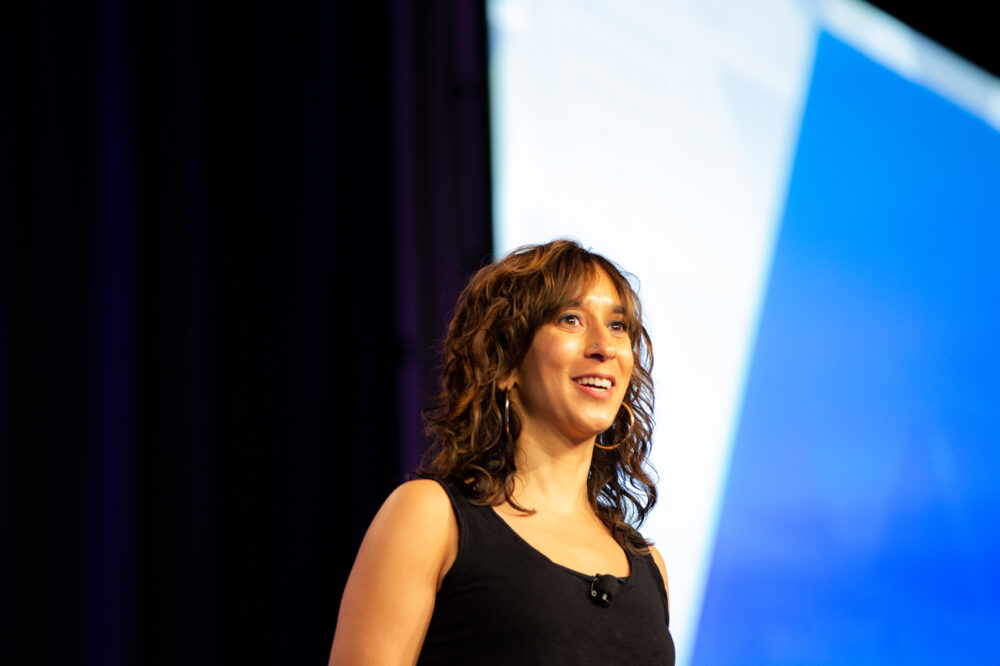To the Women Who Came Before Me, and Those on Their Way
A personal reflection from our Senior Director, Workplace and Financial Health Equity, on the financial barriers women have endured across generations and how to break the cycle.
By Tanya Ladha
-
Category:

Gulab Devi Biyani. She was my grandmother. Born in a rural village in Northern India, she had 11 children and buried six. She could not read or write. By all accounts, she was kind, creative, intelligent, feisty. And while I imagine she dreamt of financial independence, it wasn’t her reality.
Tatjana Neugebauer. She was my grandmother. Born in St. Petersburg, Russia (still called Leningrad then), she became a war refugee as a child, without her parents, her familiar surroundings, and her native language. She had a child – my mother – at 17, unwed. She worked her entire life and knew the price of financial vulnerability.
I am because these women were. Sometimes it is hard to fathom how different my life, financial and otherwise, is from my grandmothers’. Their stories have traveled across time and geography. Then I consider how different the financial lives of women in this country were as recently as one to -two generations ago.
In the United States, it wasn’t until 1974 that women were able to open a bank account, have a credit card, or get a mortgage in their own name. Prior to that, financial institutions could refuse these basic financial instruments to women, sometimes legally or sometimes simply because the social power structure allowed it. Without access to credit-building products or authority over one’s own spending, saving, or purchasing, one has little hope of building their own long-term financial health. Unfortunately, the last 50 years of access hasn’t resulted in equitable financial health outcomes for women. In July 2022, the Financial Health Network found that women reported worse outcomes on all measures of financial health: spending, saving, borrowing, and planning.
Another key ingredient to managing one’s own financial health is the ability to attain and sustain a good job. At the Financial Health Network, we define a good job as one that offers a living or thriving wage and a set of holistic and supportive benefits, such as health care, retirement, paid time off, and family leave. Over countless generations, women have faced myriad obstacles to securing gainful employment. In 1963, the Equal Pay Act was passed and prohibited wage discrimination on the basis of sex. And yet here we are, 60 years later, straddling a shameful gender wage gap. March 12 marks how far into the calendar year White women must work to earn what men (on average) earned in the previous calendar year. The day creeps increasingly farther into the year for queer women and women of color – as far as November 21 for Indigenous women. Compounding the issue, women are overrepresented in jobs that provide low wages, which are often the same jobs that fail to provide adequate benefits.
I, like millions of American women of different ethnicities and races, have more financial opportunities and financial access than my mother or grandmothers. But it’s not enough, and financial health remains grossly inequitable. The impacts of patriarchy are both personal and systemic. The Financial Health Network has always been committed to improving the financial health of the most vulnerable among us. Over the last several years, we have crystallized a vision of financial health equity, striving toward a day when gender, race, and other dimensions of identity don’t dictate financial health outcomes.
As we move forward, I am honored to become the Financial Health Network’s Senior Director, Equity – our first official role reflecting our commitment to this work. I look forward to connecting with long-time Members and stakeholders, as well as forging new relationships in our efforts to build a more equitable future.
I honor my grandmothers Gulab (meaning rose) and Tatjana (my namesake) often, not just today, as I’m sure many of you do. They endured and they dreamt so that we could stand. And today, we stand so that those that come next can soar.
Join me in paving the way at EMERGE Financial Health 2024. I’ll be co-hosting this year’s milestone 20th anniversary event, which will bring together hundreds of finhealth leaders committed to creating a more equitable financial system. Register now to attend our session focused on women’s financial health, reflect on 20 incredible years of progress, and prepare to rewire our society to support financial health for all. I look forward to seeing you there.
